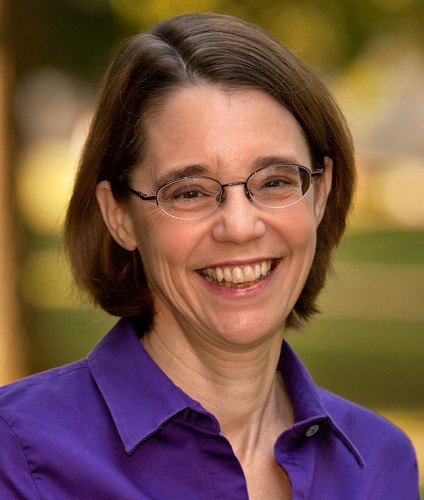
Kathy Krynski joined the Department of Economics in 1986. She has taught a broad array of applied economics courses including labor economics as well as core courses in microeconomics and econometrics. She also teaches seminars on the economics of women and work, the economics of education and the economics of the family.
She was trained as a labor economist and spent a year as a visiting economist at the Social Security Administration working on labor supply and retirement issues. Krynski also has conducted joint research with David Harrington on the economic effects of state regulations on funeral markets and the earnings of funeral directors. They have also investigated whether native workers are being displaced due to the entry of Vietnamese into the market for manicurists and how the displacement rate is affected by differences in state regulations. She also served as associate provost from 1999-2002. Prior to Kenyon she held faculty appointments at Pomona College and the University of Notre Dame.
Areas of Expertise
Applied microeconomics, labor economics
Education
1987 — Doctor of Philosophy from Univ of Wisconsin-Madison
1980 — Master of Science from Univ of Wisconsin-Madison
1977 — Bachelor of Arts from Pomona College